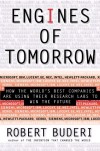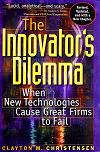
The Rise of the Creative Class: And How It’s Transforming Work, Leisure, Community and Everyday Life. Basic Books, June 15, 2002.
http://www.creativeclass.org
The Rise of the Creative Class gives us a provocative new way to think about why we live as we do today - and where we might be headed. In a book that weaves a storytelling with a massive body of research, Richard Florida traces the fundamental theme that runs through a host of seemingly unrelated changes in American society: the growing role of creativity in our economy. Just as William Whyte's 1956 classic The Organization Man showed how the organizational ethos of that age permeated every aspect of life, Florida describes a society in which the creative ethos is increasingly dominant. Millions of us are beginning to work and live much as creative types like artists and scientists always have - with the result that our values and tastes, our personal relationships, our choices of where to live, and even our sense and use of time are changing. Leading the shift are the nearly 38 million Americans in many diverse fields who create for a living - the Creative Class. more info >

The Future of Ideas: The Fate of the Commons in a Connected World. Random House, 2001.
http://cyberlaw.stanford.edu/future/
In The Future of Ideas, Lawrence Lessig explains how the Internet revolution has produced a counterrevolution of devastating power and effect. The explosion of innovation we have seen in the environment of the Internet was not conjured from some new, previously unimagined technological magic; instead, it came from an ideal as old as the nation. Creativity flourished there because the Internet protected an innovation commons. The Internet’s very design built a neutral platform upon which the widest range of creators could experiment. The legal architecture surrounding it protected this free space so that culture and information–the ideas of our era–could flow freely and inspire an unprecedented breadth of expression. But this structural design is changing–both legally and technically. more info >

Engines of Tomorrow: How the World’s Best Companies are Using their Research Labs to Win the Future. Simon and Schuster, 2000.
http://www.enginesoftomorrow.com
Engines of Tomorrow is a firsthand, in-depth account reported from three continents that examines the unheralded role of corporate research in producing this unparalleled wave of technological innovation. Here are first-hand communiqués from inside the labs of a reborn IBM, resurgent Lucent and GE, research upstarts Intel and Microsoft, and four other leading global companies in the fast-moving communications-computer-electronics sector: Hewlett-Packard, Xerox, Siemens, and NEC. Contrary to the popular view, Engines of Tomorrow shows how fundamental research projects were never eliminated from the best labs, and are even enjoying a cautious renaissance, promising to propel growth and productivity well into the twenty-first century. more info >

The Innovator's Dilemma: When New Technologies Cause Great Firms to Fail. Harvard Business School Press, June 1997.
Christensen argues that good business practices -- such as focusing investments and technology on the most profitable products that are currently in high demand by the best customers -- ultimately can weaken a great firm. Drawing on patterns of innovation in a variety of industries ... he shows how truly important, break-through innovations -- or disruptive technologies -- are initially rejected by mainstream customers because they cannot currently use them. This rejection can lead firms with strong customer focus to allow strategically important innovations to languish.